St Pauli, a football club like no other in the world
Adored by fans around the globe, they have no truck with prejudice of any kind, including racism and homophobia. And while the game makes capitalists drool, they shun greedy sponsors.
Author:
17 March 2022
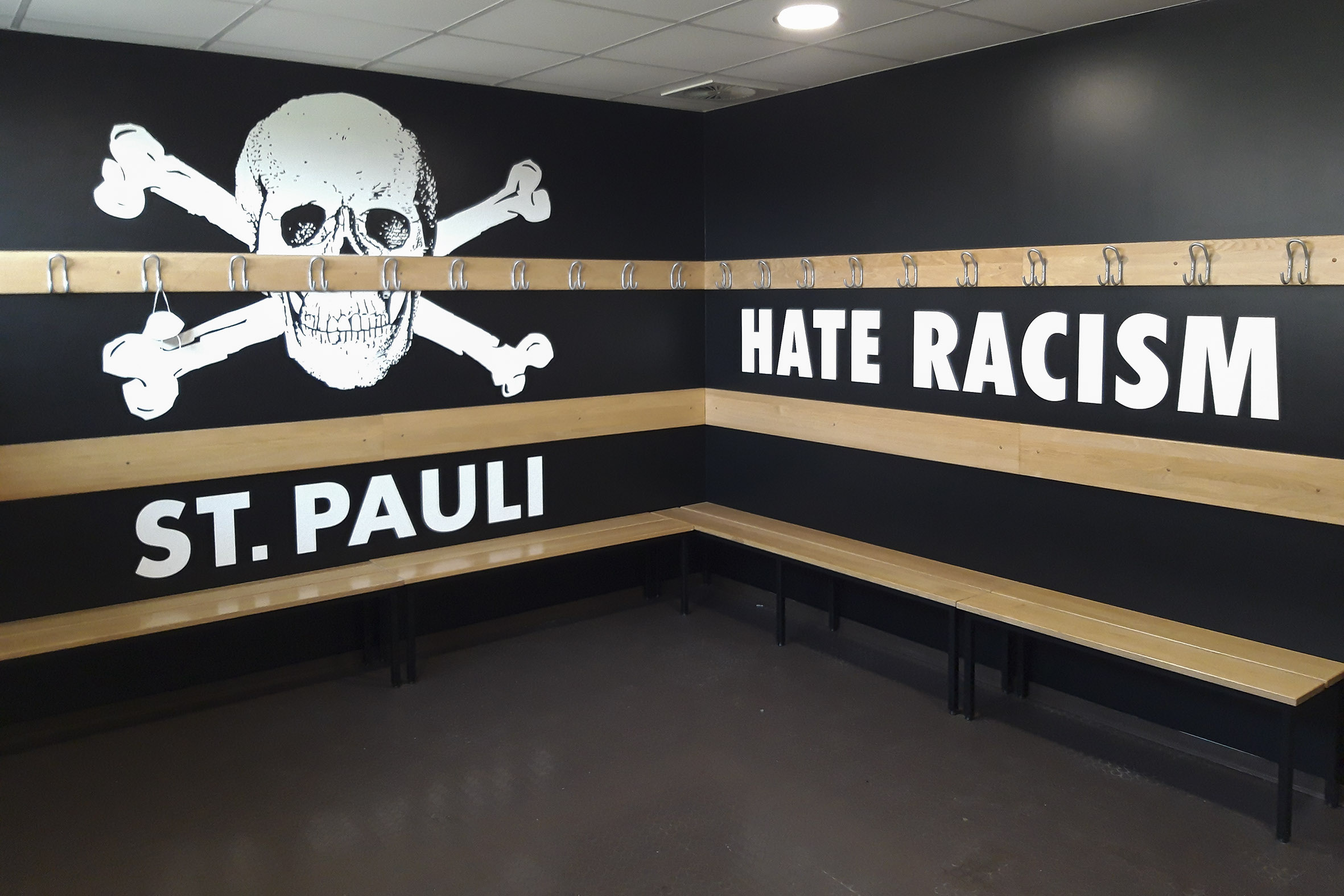
“I could not think of another team that is so unsuccessful and yet so popular,” says Michael Pahl, chairperson of the board of the FC St Pauli Museum. And he says it with pride.
The German club, based in Hamburg in the district for which they are named, are an enigma. St Pauli, who campaign in the second division, count more than 400 registered clubs for supporters. Most of them are in the Hamburg region, but organised fans and unofficial fan clubs can be found all over Germany and in many countries around the world.
“I have a friend from Argentina, where there is a big St Pauli’s fan club,” says Pahl. “He moved to Poland because of a job opportunity, but he confided to me that part of the decision to leave was to live closer to Hamburg.”
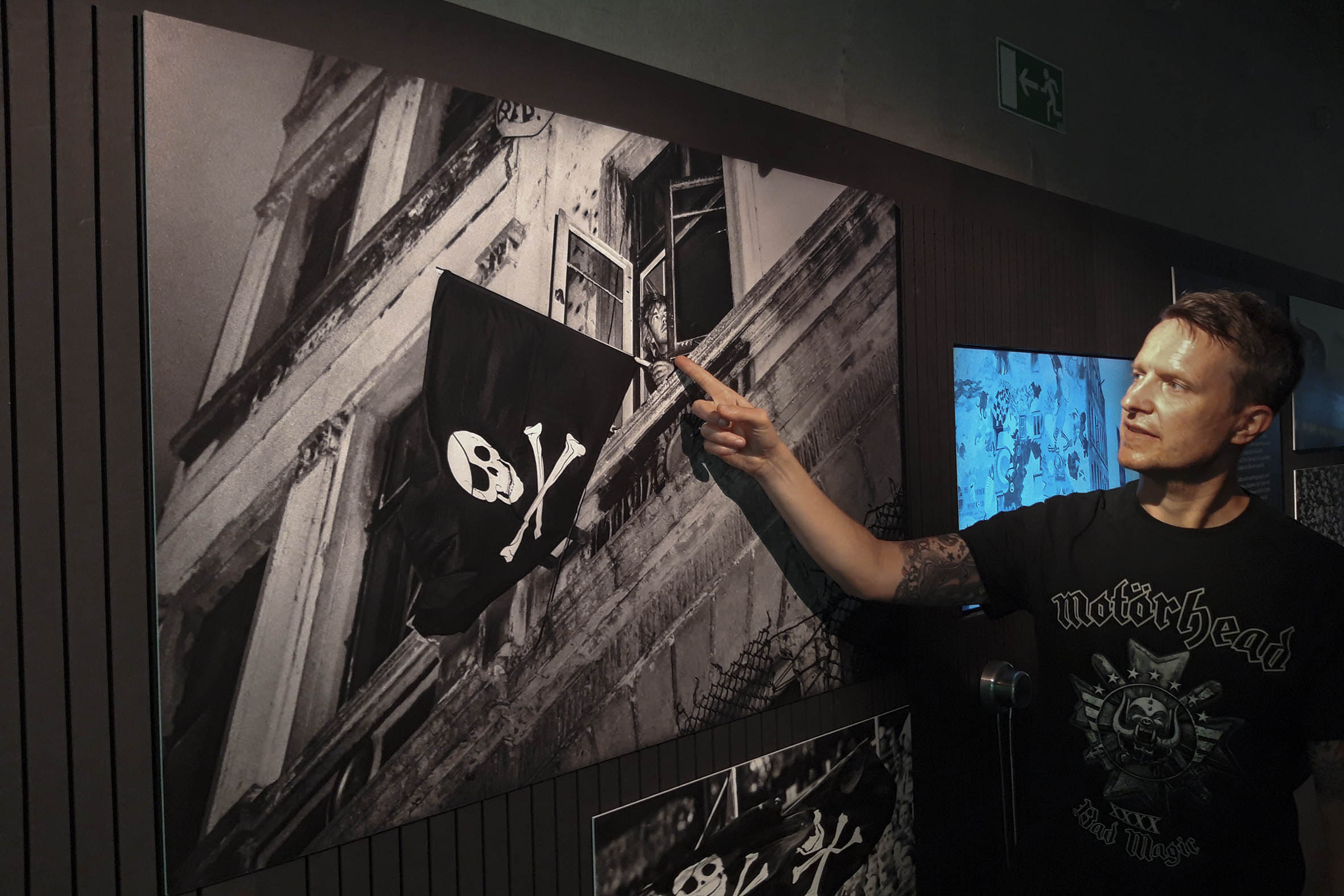
There are many things that attract so many people without ties to either Germany or St Pauli’s history: the quirky, distinctive fan scene; their willingness and ability to transcend football and embrace human values such as inclusiveness and tolerance when divisions are becoming increasingly accentuated elsewhere.
“Other clubs say that politics should stay away from football,” says Sven Brux, St Pauli’s head of matchday and fan affairs. “Our whole board disagrees. We are responsible for what happens around us and for people living in our area.”
St Pauli, whose stadium has a sign that says “No man is illegal”, openly and animatedly oppose racism, homophobia, or any other kind of discrimination. But what makes them unique is the harmony that binds fans, club members and officials in the promotion and conservation of these values.
Related article:
It is the result of constant dialogue between all the parties involved. Every two months the club set up a meeting with their members and organised supporter groups. Two weeks before the meeting, the agenda is emailed to everyone so that topics for discussion can be proposed. If personally called into question, specific club officials attend the meeting and share their views.
“We have a very strong relationship,” Brux points out. “We have direct contact. I have the phone numbers of fans cheering in the stands. They have mine. This is special. We speak very openly and clearly, and that’s possible because most of the club’s leading people up to the chairman [Oke Göttlich] have a fan background.”
This relationship has existed for years. “Feeding this culture of dialogue between all the parties can sometimes be very exhausting, but it’s very helpful because you talk to each other, ask critical questions and exchange ideas,” says Pahl.
The seminal era
But have St Pauli been like this since their foundation? The answer is no. There are two St Paulis – one before the 1980s and the current one. In their first incarnation, St Pauli were a regular middle-class club usually playing in the second division. They experienced many ups and downs. They reached the semifinals of the German championship in 1948, which is the closest they got to a major title. The biggest downfall happened in 1979, when they were relegated to the third division after going bankrupt and losing their licence.
“The club had such a bad image at that time that the sponsor forced them to cover its logo on the jerseys,” Pahl recalls. The number of spectators was about 1 000, a completely different scenario compared with the one prior to the Covid-19 pandemic when the 29 546 seats of the Millerntor Stadium were always full regardless of the opponent. About 12 000 people regularly waited for an opening in the season ticket allocations. There was little interest in the club after that relegation. Then the sociopolitical scene in Hamburg changed.
Those were turbulent times in the famous district of St Pauli, particularly in the Hafenstrasse, a street near Hamburg’s major red-light district, the Reeperbahn. Starting in 1981, Left anarchists, punks and young students occupied empty homes in 13 buildings in the street. It quickly turned the district into the core of autonomist and anti-imperialist politics and, after a long and sometimes bloody battle with the city council, the occupiers were legalised in the 1990s.
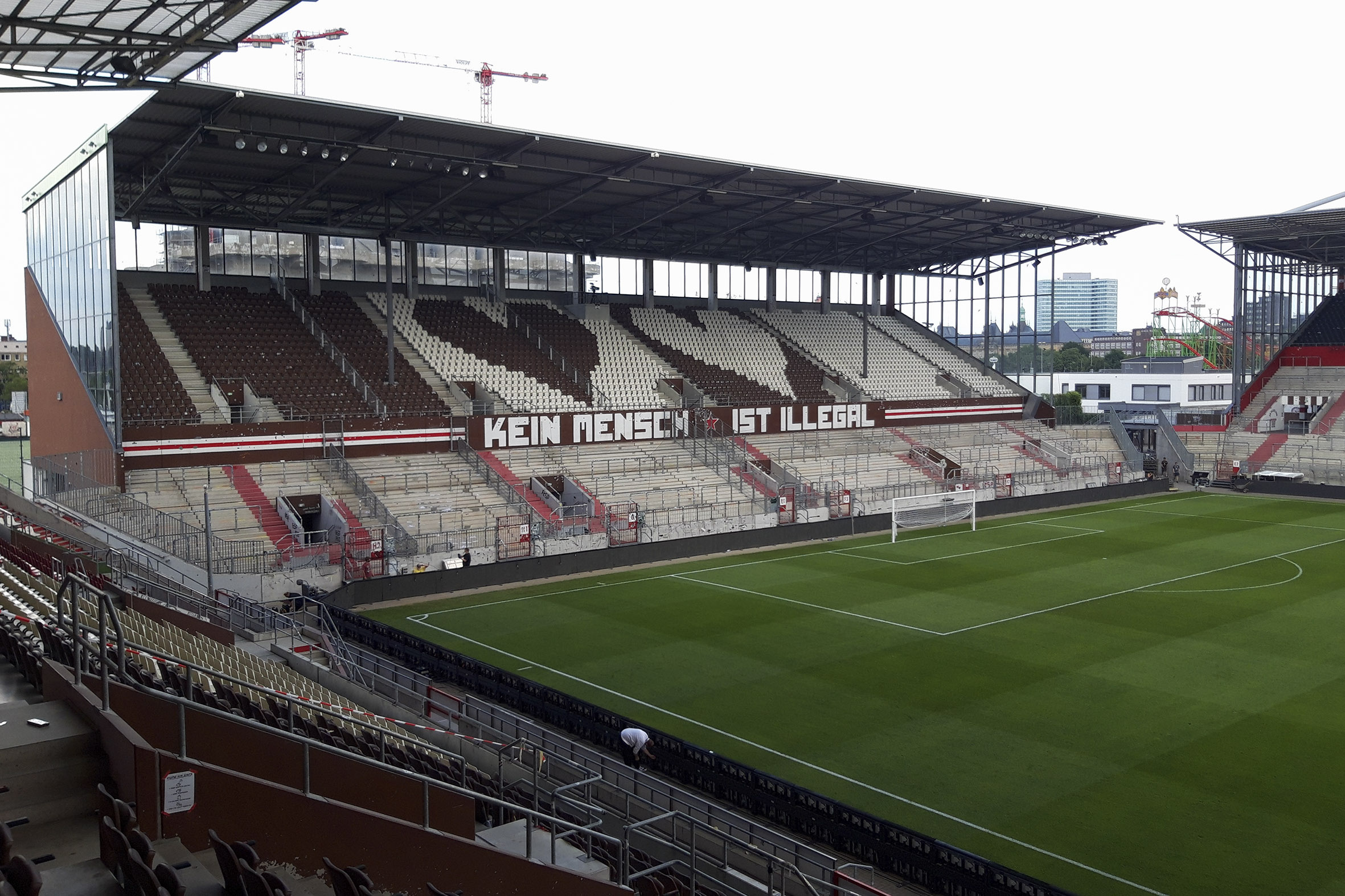
If one had a Left political view, it wasn’t very pleasant going to any stadium in Germany at the time. Football was rife with hooliganism and right wingers. But the situation took a different turn as those left-wing people also started going to stadiums, bringing their principles with them. “They were a visible group called ‘black blocs’,” says Pahl.
“Black blocs started chanting songs that had never been chanted before, like no more war and fascism. They kicked out a right-wing fan group and fans selling racist stickers at the stadium, taking matters into their own hands. That was how it worked for them as they came from the punk-rock scene.”
At Millerntor Stadium, St Pauli’s new fans found empty spaces they could occupy. They lit the fuse of the future German football fan scene.
Improving fortunes
At the same time, St Pauli were achieving better results and finally reached the first division in 1988. Fans joined in droves because the football was good, too. All these changes oddly came together in one person: goalkeeper Volker Ippig. He was politically active and among the occupiers in the Hafenstrasse, the player with whom people identified. Even more got to know about him and the club when the Bundesliga’s broadcasting rights went to pay-television channels that spread the message far and wide.
“TV helped create this image St Pauli still has – the underdog crazy club with crazy fans,” says Pahl. “A lot of things came together that no marketing expert could ever have created on a whiteboard. It just happened and became a snowball. Later, the club’s board began to understand what was going on and today it’s living this idea and making money from it. After all, it was good to fall down to the third division. It was a rebirth for the club and opened new doors for it.”
In the St Pauli context, football often takes a back seat to their human values label, which makes some fans turn up their noses. They have been up and down between the Bundesliga and 2. Bundesliga. They have been languishing in the second division since 1997 after short stints in the top tier between 1988 and 1991, and 1995 and 1997.
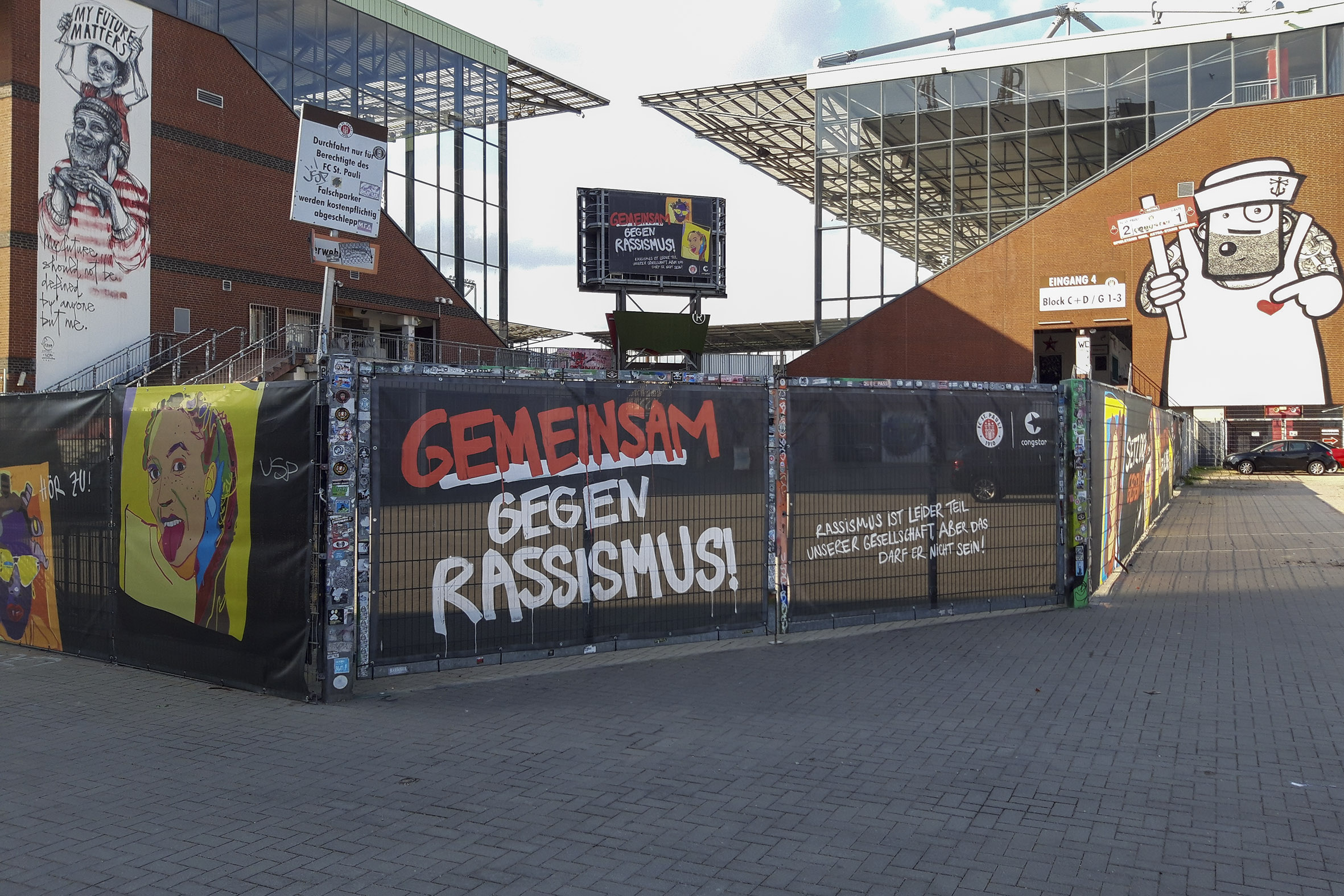
“International media outlets sometimes forget that St Pauli is a football club,” says Rolf-Peter Rosenfeld, nicknamed “Buttje”, who is a former St Pauli’s player and Hamburger Morgenpost journalist. He would like to see football treated as the priority, or at least a balance between the club’s football and social activities.
“Then I would say St Pauli could be the perfect club [to support],” he says. “What they have created is amazing, and I understand that behind the preservation of these values there is an economic reason as well. That’s okay. I don’t criticise that, but it should lead to better football. The club is financially stable now. They have a lot of sponsors. When it comes to money, St Pauli are not an underdog anymore. They are not an underdog in the second division.”
Rosenfeld is convinced that greater ambition wouldn’t affect the club’s social soul. “St Pauli will always be different and being in the first division could play a big role in launching messages against the capitalistic drift of football.”
Same system, different approach
Lukas, a member of the cult fan club Ultrà Sankt Pauli, known as the Ultras, also wishes the club could play a role in tackling this drift, but he recognises that they are in a minority. “And we are aware that we are part of the same system,” he said. “We do the same [as clubs we criticise]. We pay a lot for players, for example. We as fans feel the contrast because we know that we are part of associations we dislike, but we try to be part of the system in a different way.”
For example, St Pauli fans take special care in how the club’s merchandise is distributed and marketed. “We choose who realises it. We look for fair trades,” says Lukas.
Brux acknowledges that playing regularly in the first division would put the club in the media spotlight more, giving them the chance to earn more money to support their social projects and spread their views. But getting more money would sometimes force them to make unpleasant compromises, which has meant giving up big contracts to preserve their values.
“In 2009, for instance, we organised a big conference with around 200 people representing every St Pauli side,” recalls Brux. “We decided that we won’t ever sell the name of the stadium like other clubs do. That meant that we lost millions of euros, but at the same time those values are more important than money.”
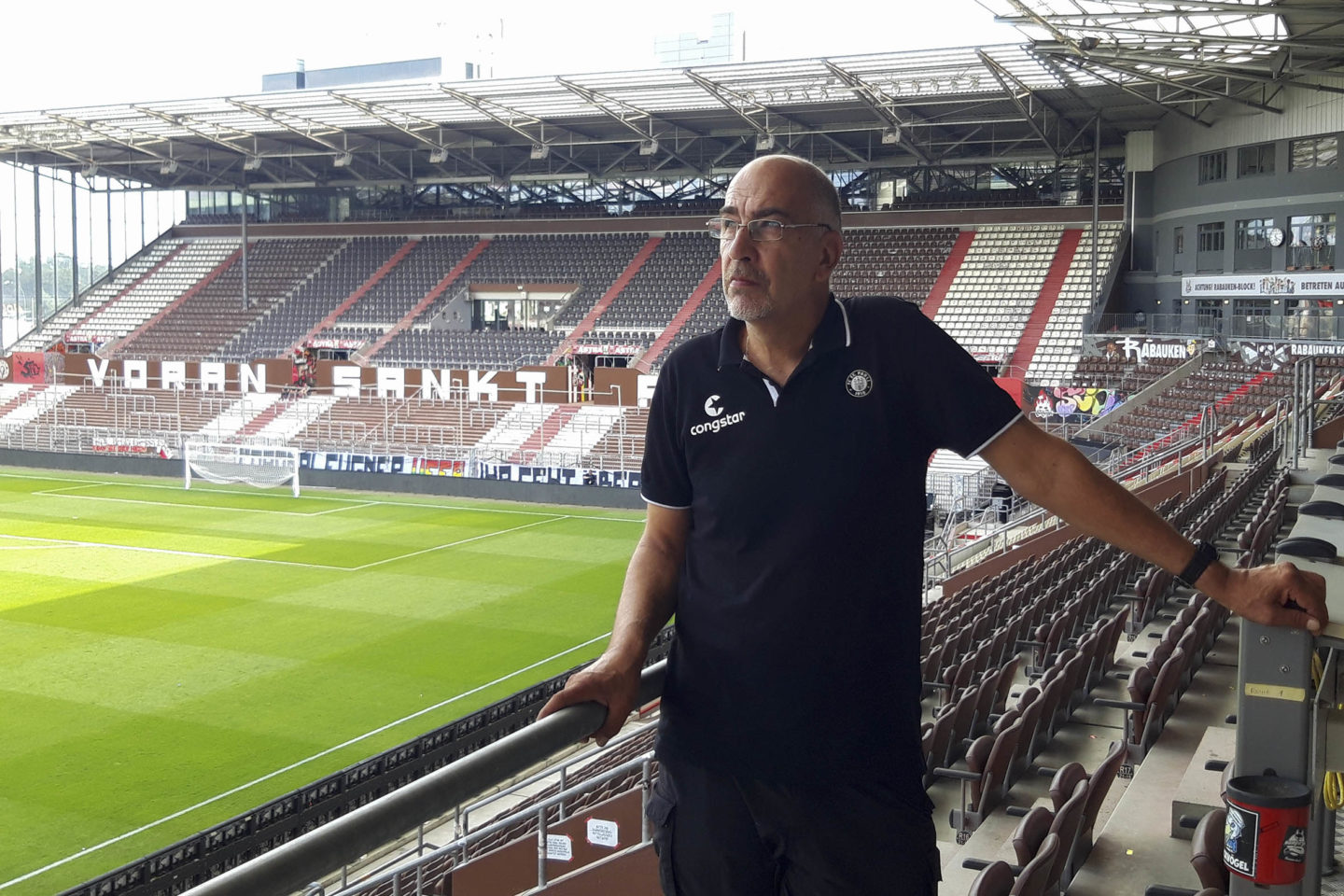
And besides, says Brux, some fans have a different concept of success. “Many fans don’t care about the first division where big, rich clubs play. We are in the second league in Germany, so it’s possible to be successful in football while preserving your own values.”
Brux thinks that fans who demand better football results are right, but that most fans agree that St Pauli’s values are non-negotiable and sporting success comes second.
“Other clubs don’t care about their fans’ opinion, and if a big company like Qatar Airways steps up they welcome it because they think they can’t say no,” he says. “If a company like Qatar Airways comes to us we tell them to fuck off.”

